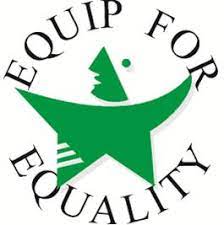
On November 9, 2021 the Illinois disability rights legal organization Equip for Equality (EFE) and the University of Illinois Chicago (UIC) announced an agreement to improve digital accessibility for blind employees and students of the university. The agreement was reached using the collaborative dispute resolution process of Structured Negotiation.
No lawsuit was needed or filed.
The settlement agreement addresses accessibility governance, standards, policies and practices. As provided for in federal and Illinois disability rights laws, UIC compensated the blind claimant and paid reasonable attorneys fees to EFE.
An advantage of Structured Negotiation is that parties can work on improvements during negotiation without worrying that their “legal position” will be compromised. This happened here, avoiding delays that too often accompany hard-fought litigation.
Among other things, and as stated in the agreement, during the Structured Negotiation UIC revised its Social Media Guidelines and Best Practices to include accessibility, remediated its Human Resource website, and worked with vendors to improve app accessibility. UIC hired an Assistant Director of Digital Accessibility and remediated its Covid-19 dashboard.
Rachel Weisberg was one of the EFE attorneys who worked on the Structured Negotiation:
The Structured Negotiation model allowed us to have positive, solution-oriented discussions almost immediately. By committing to the process, we all had ownership of the final result, leading to a better, stronger agreement.Rachel M. Weisberg, Managing Attorney, Equip for Equality
Structured Negotiation is a dispute resolution process that puts a focus on people. In this case, Peter Berg was the blind UIC employee who first raised accessibility concerns. He is quoted in the press release (a release that adheres to the Structured Negotiation approach to media as described in Chapter 8 of my book, Structured Negotiation, a Winning Alternative to Lawsuits:
I appreciate UIC’s intent to be proactive about digital accessibility through its new policies, training and procurement rules,” said Berg. “A proactive approach is critically important to ensure blind employees and students can independently access what we need to do our jobs and be part of the community.Peter Berg, Claimant in UIC digital accessibility Structured Negotiation
Transparency is a quality of Structured Negotiation. While it is not always possible for settlement agreements to be public, it is a best practice to share details of how legal initiatives in the digital accessibility space are resolved because they have impact beyond the individual people and organizations involved in the case.
A problem with too many accessibility lawsuits filed today is that they are filed with a big splash about the so-called value of the case, and then they are settled without a glimpse into what accessibility improvements (if any) were actually made.
Not so with Equip for Equality’s collaboration with UIC. Here are the links to both the press announcement and the full settlement agreement.
- UIC digital accessibility press release
- Read the University of Illinois Chicago settlement agreement
Congratulations to all involved in this settlement!
This article is part of a Topic on this website about how other people have used Structured Negotiation to resolve legal claims with less conflict and cost. For Lainey’s Structured Negotiation cases, please visit the Settlements page of this website.
You can read more about Structured Negotiation, including how it allows people in a dispute to share information in a practical, cost-effective way that leads to win-win results, in the recently published second edition of Lainey’s book, Structured Negotiation, A Winning Alternative to Lawsuits.